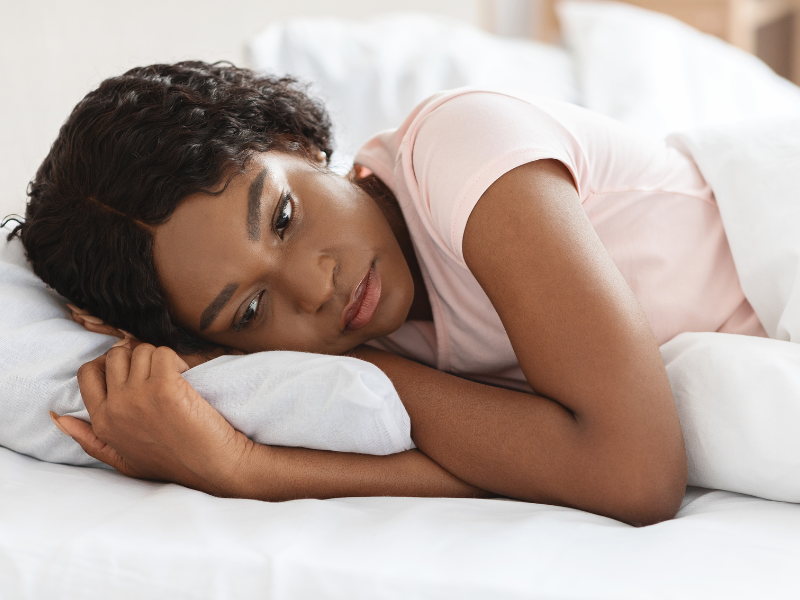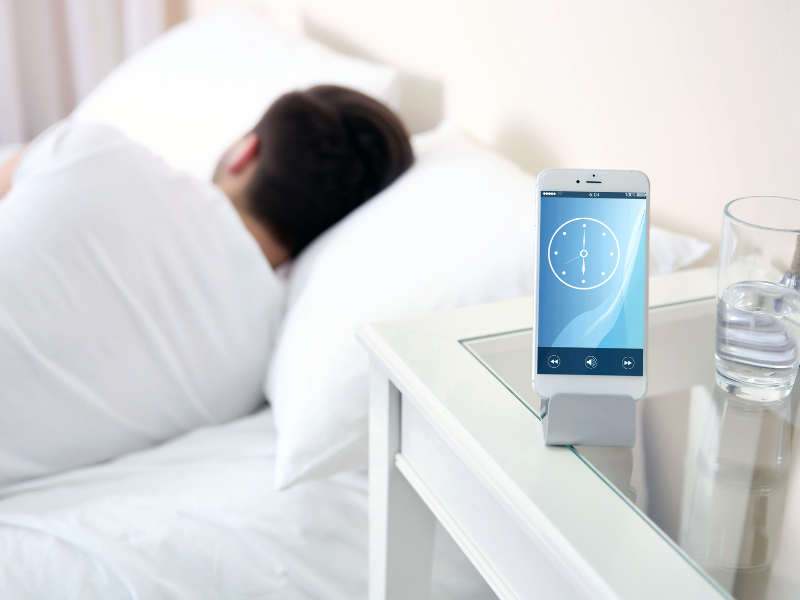How To Get Out Of Bed If You Really, Really Don't Want To
Because no, it's a work day, you can't just roll over and go back to sleep.By

Whether it’s because you’ve had too much sleep, not nearly enough, you’re groggy from overdoing it the night before, or you can’t face the day ahead, mornings when you don’t want to get out of bed can feel like the biggest battle.
Get chilly
By this we mean, start the day with a cold shower (they’re actually pretty good for you, too). Dr Tim Bond, a sleep and natural health expert from Puressentiel, says if you can’t manage a cold shower, try splashing your face with cold water. Do this as soon as you get in the bathroom after getting out of bed: simply run the tap, fill your hands up with the cold water and bring it to your face. Repeat several times depending on your level of tiredness!
Tell yourself you can get up
Lying in bed indulging the idea that you will never ever get out of it, that you’re far too tired, and that the only thing you want to do is lie there all day and not face the world is not the best start to your day. Be optimistic. While you’re lying there – even if your eyes are still closed – tell yourself you can get up. Maybe even count to 10 to give yourself a little prep.
Reach for your glass of water before your phone
Take a pint of water with you to bed the night before, so you can stay hydrated throughout the night if needed, but also so you can take a few gulps within a few minutes of waking up, says Dr bond.
Keeping hydrated has a range of benefits, one of which is that drinking water first thing in the morning flushes out the stomach and balances the lymphatic system. A stable lymphatic system will help build a strong immune system, which will prevent you from getting sick as often.
But also, drinking water first thing is meant to improve your brain function. Dehydration is linked to decreased mental performance, meaning that completing tasks becomes more difficult.
Start a conversation
Preferably not on your phone. If you live with someone – whether that be family, friends, or a partner – Dr Bond suggests starting a conversation to activate your brain and wake yourself up.
Stretch your body (in bed if you’d like)
A morning stretch will do wonders for you first thing in the morning, says Dr Bond. Firstly, a morning stretch can ease away any aches and pains, that might otherwise make you want to sink into your bed even deeper. But the stretches can also boost your mood and make you feel more alert – because you’re effectively telling the different muscles in your body to wake up, too.
Physiotherapist Nick Sinfield recommends doing an overhead stretch first. Extend your arms over your head, feeling your body stretch from your toes to your fingertips. Then, take three to four deep, relaxing breaths.
Next, you could try the knee-to-chest stretch. Bring one knee to your chest, keeping the other leg bent. Take three deep, relaxing breaths, feeling the stretch in your bum and lower back. Repeat with the opposite knee. Find more stretches here.
Move your alarm the other side of the room
One of the hardest parts of waking up is actually getting out of bed – once the duvet is off you and the softness of your pillow is no longer under your head, you’ll know that functioning gets a little easier. So here’s the easiest trick in the book: put your alarm on the other side of your room – preferably with a sound you don’t like to hear – so you have to get up and turn it off.
Have something to look forward to
Whether it’s a coffee with frothy milk, delicious overnight oats that you made the night before, or a fruity, ice-cold juice in the fridge – prep something ahead of time that you know will make you want to get out of bed.
...
By
Source @HuffPost UK Life









